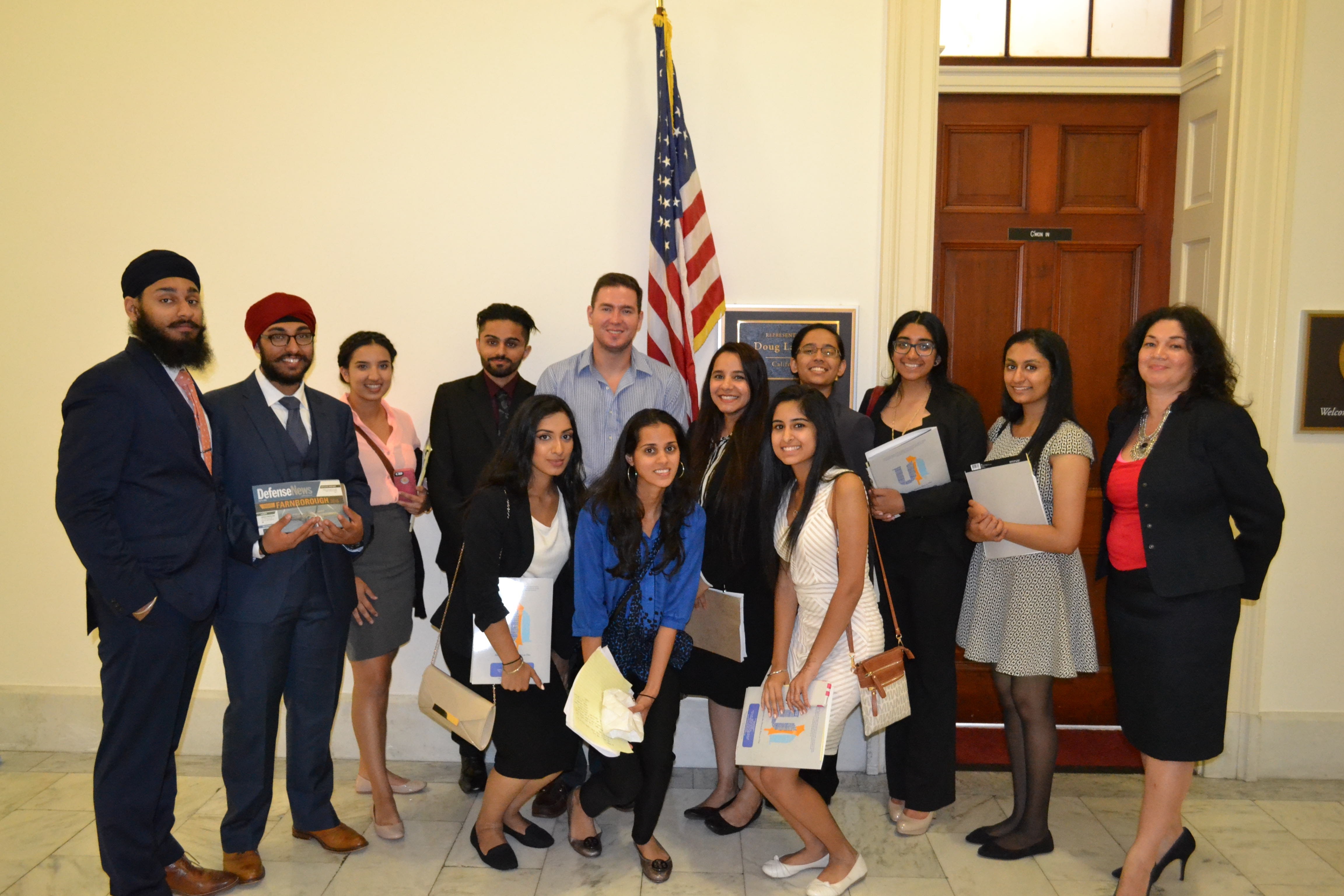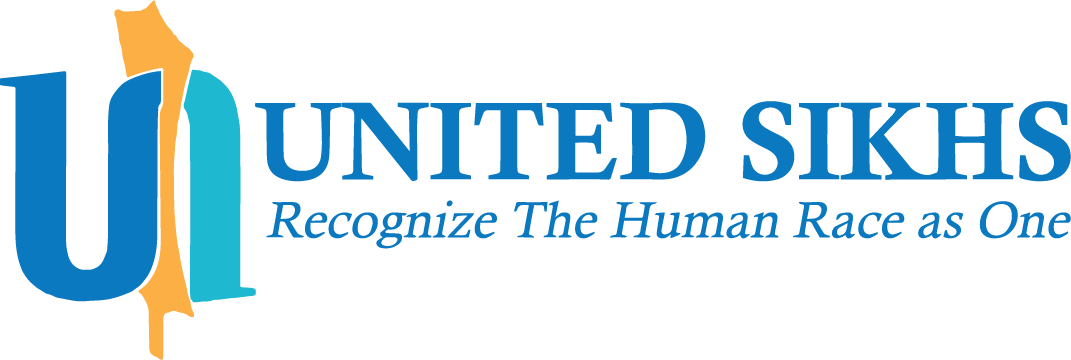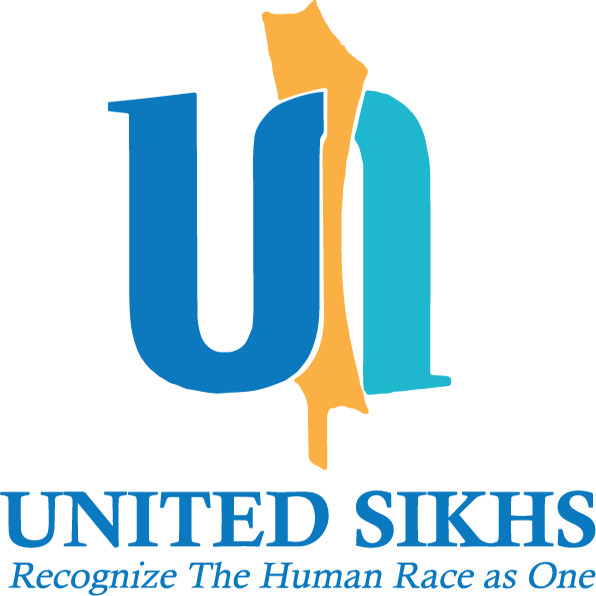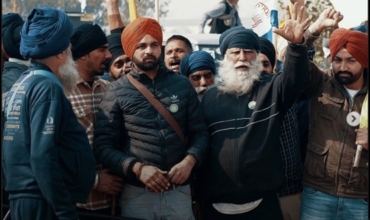Posted in ICHRALatest NewsPress Release
 |
| Introduction |
| Washington DC, USA: From July 11, 2016 through July 13, 2016, UNITED SIKHS, joined by students of the organization’s Advocacy and Humanitarian Aid Academy (AHAA), met with Congress members and their staff to speak about issues affecting the Sikh community. Top of the list of matters discussed were bullying and hate crimes, counting Sikhs in the U.S. Census, religious accommodations in the armed forces and the “Hair Sampling Bills.” While issues like aggressive security screening in the private and public sectors, wearing the Kirpan while serving on jury duty and U.S. foreign policy on treatment of the Sikh minority in France, Belgium, Iran, Pakistan and India are high on the list of Sikh civil and human rights concerns, the four topics UNITED SIKHS focused on are issues on which significant progress could be made in the next year. |
| Religious Freedoms in the Armed Forces |
| During the Sikh Congressional Caucus in late June, UNITED SIKHS called for legislation that would address religious accommodations for Sikhs who want to serve in the U.S. armed forces with their articles of faith intact. The armed forces policies that call for soldiers to shave and cut their hair deny Sikhs the right to serve because Sikh religious tenets call upon them not to cut their hair. We are pleased that there is sympathetic and enthusiastic support from Congress members for the position that Sikhs should not have to make the impossible choice between serving their country and keeping their faith. UNITED SIKHS supports calling upon the U.S. Department of Defense to review its policies for conformance with the U.S. civil rights laws. |
| Bullying, Hate Crimes and the U.S. Census |
| Federal and state governments rely on the U.S. Census to address civil rights violations. It is well known that that the Sikh community has suffered backlash, hate crimes and bullying, especially since 9/11. The Census could inform the federal and state governments about where civil and human rights violations against Sikhs occur the most. Because it loops Sikhs into the general Asian -Indian racial group, the Census does not provide the necessary statistics that would enable the federal and state governments to act. The Census cannot assist in accurately identifying the percentages of hate crimes occurring in the Sikh community until it can provide reliable information about how many Sikhs there are in the United States. Studies show many Sikhs have been bullied, harassed or even assaulted at some time in their lives. The Sikh community has the support of various members of Congress for the proposition that Sikhs be allowed to self-identify in the Census and that Punjabi language instructions be sent to the community before the next Census in 2020. This would go a long way to making every Sikh count so that action can be taken to address bullying and hate crimes against the Sikh community. |
| S. 806: Drug Free Commercial Driver Act of 2015 (“Hair Sampling Bill”) |
| The Hair Sampling bill (S.806), out of the U.S. Senate’s Commerce, Science, and Transportation Committee, is on the Senate legislative calendar under General Orders, (Calendar No. 404). H.R. 1467 is currently pending in the U.S. House of Representatives’ Transportation and Infrastructure Committee, Subcommittee on Highways and Transit. These bills seek to revise regulations that require motor carriers to conduct pre-employment, reasonable suspicion, random, and post-accident testing of commercial motor vehicle drivers for controlled substances or alcohol use. These bills provide that motor carriers can apply to the Federal Motor Carrier Safety Administration (FMCSA) for an exemption from mandatory urinalysis testing and must report refusals to test. This raises concerns in the Sikh community that motor carriers will not give Sikh employees or Sikh employment applicants a choice. This would infringe on a Sikh’s religious right because it interferes with the mandates of the faith that they not cut their hair. UNITED SIKHS called for adding language to the bills that would clarify that a motor carrier who receives the exemption must report the reason for refusal and provide the employee or applicant with the opportunity to test in some other way. |
| Please support our work |
| UNITED SIKHS is working diligently with Congress members and other advocacy organizations for action on these issues. In order to continue advocacy efforts and host annual Summits, we need your support and assistance. Please click here to donate online today. |




